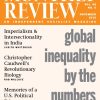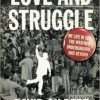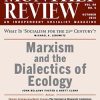
November 2016 (Volume 68, Number 6)
U.S. presidential elections, if nothing else, throw considerable light on the ideology and imperatives of the system. This is particularly the case with respect to imperialism, where one sees signs of a declining and increasingly desperate U.S. empire. Hillary Clinton has been calling for a no-fly zone in Syria (which would include Russian planes!), thereby threatening a confrontation with Russia on a level not seen since the Cuban Missile Crisis.… Trump, for his part, while appearing to suggest a kind of détente with Russia, is ready to intervene directly and massively in Iraq against the Islamic State (ISIS, ISIL, Daesh), including the use of ground troops. He supports the extension of torture and the slaughter of whole families of suspected terrorists. He claims that he would raise Israel from being a second-level power…. In short, the presidential nominees for the two major political parties are each posturing over who is the most aggressive and bellicose upholder of U.S. militarism and imperialism—and in ways that threaten further escalation of war in the Middle East and in opposition to Russia. | more…

Measuring Global Inequality
It is by now well known that significant and growing economic inequality is a central feature of the U.S. economy, as previous articles in Monthly Review have shown. However, the same is also the case for much of the rest of the world. Inequality arises in other countries for reasons similar to those in the United States, but each nation has its own history, along with widely divergent economic and political structures. Here we will look first at the most recent data on global inequality, and then at its causes and consequences. | more…

Revolutionary Biology
Next year will mark the eightieth anniversary of the Battle of Jarama.… In February 1937, eleven thousand Republicans…fought and died defending Madrid against Francisco Franco’s fascist incursion. At this point in Spain’s Civil War, the country was split evenly between west and east by rebel Nationalist and Republican forces. An earlier direct assault on Madrid had been repulsed. Republican troops subsequently consolidated their defenses along the Manzanares River. An assault through Madrid’s southern barrios would have cost Franco’s forces dearly. General Emilio Mora’s men north of the city in the meantime were held in check by Popular Front forces in the Sierra de Guadarrama.… The Nationalists turned to cutting off Madrid from the Republic’s provisional capital. They planned to march south before swinging north and capturing the road to Valencia. In early February, Franco ordered 40,000 of his battle-hardened Moroccan troops and an Italian unit provided by Mussolini to attack. The forces crossed the Jarama River on February 11. Republican General José Miaja countered the thrust with three battalions of the XV International Brigade, including the Dimitrov Battalion and the British Battalion. | more…
Intersectionality and Primary Accumulation
The overarching goal of this article is to explain how the relations between capitalist imperialism, primary accumulation—often misleadingly called “primitive accumulation”—and intersectionality operate in contemporary global political economy. From many recent studies, it is clear that certain populations are more vulnerable to processes of primary accumulation than others, and that many people in the global South now experience the dispossession and displacement caused by primary accumulation without any subsequent incorporation into waged work. Understanding how ethnicity, gender, and class intersect within contemporary patterns of global accumulation is important in order to develop clear political strategies against ongoing dispossessions.… To do so, imperialism, primary accumulation, and intersectionality all need to be rethought, especially in relation to each other. | more…

Memories of a U.S. Political Prisoner
“We will fight from one generation to the next.” In the 1960s and 1970s we anti-imperialists in the U.S. were inspired not only by that slogan from Vietnam but even more by how they lived it with their 2000-year history of defeating a series of mighty invaders. At the same time we felt that we just might be on the cusp of world revolution in our lifetimes. Vietnam’s ability to stand up to and eventually defeat the most lethal military machine in world history was the spearhead. Dozens of revolutionary national liberation struggles were sweeping what was then called the “Third World,” today referred to as the “global South.” There was a strategy to win, as articulated by Che Guevara: to overextend and defeat the powerful imperial beast by creating “two, three, many Vietnams.” A range of radical and even revolutionary movements erupted within the U.S. and also in Europe and Japan.… Tragically, the revolutionary potential that felt so palpable then has not been realized.… Today, fighting from one generation to the next takes on new relevance and intense urgency. | more…

Why Ecosocialism Needs Marx
In his recent foreword to the second edition of Paul Burkett’s Marx and Nature, John Bellamy Foster reflected on a significant change in left attitudes toward Marx’s ecology: “Today Marx’s understanding of the ecological problem is being studied in universities worldwide and is inspiring ecological actions around the globe.” This worldwide recognition of Marx’s ecological critique of capitalism without doubt owes much to Burkett’s Marx and Nature (1999) and Foster’s Marx’s Ecology (2000). Yet the new interest in ecological Marxism did not originate solely with these books. Rather, as their new co-authored book Marx and the Earth documents, over the last fifteen years Burkett and Foster have meticulously refuted the many criticisms of Marx from so-called “first-stage ecosocialists”…. It should be noted that, whatever their disagreements with Marx, the first-stage ecosocialists were also deeply critical of capitalism. So why are Foster and Burkett arguing with their potential comrades? Furthermore, some of the issues taken up in Marx and the Earth might appear abstruse at first glance—why bother debating them at such length?… [A] patient reader will soon recognize the book’s importance and the significance of the issues at stake. | more…

October 2016 (Volume 68, Number 5)
On August 29, in a historic moment in the history of the planet, the 35-member Anthropocene Working Group (AWG) reported to the International Geological Congress that the Anthropocene epoch in geological history is “stratigraphically real” and should be dated as arising around 1950, displacing the Holocene epoch of the last 12,000 years. The AWG has yet to arrive at a formal decision that would adopt a definite global “signal” (though ten of the thirty-five members currently support using fallout radionuclides from atomic weapons testing as the signal), which would be followed by the designation of a “golden spike” or actual location in the rock, sediment, or ice strata. Yet the general parameters of the onset of the new epoch are clear.… As Colin Waters, secretary of the AWG, explained: “Being able to pinpoint an interval of time is saying something about how we have had an incredible impact on the environment of our planet. The concept of the Anthropocene manages to pull all these ideas of environmental change together.” Most importantly, it tells us that the world economy has generated an anthropogenic rift in the Earth system threatening millions of species, including our own, requiring fundamental changes in the way in which society relates to the earth through production. | more…
Marxism and the Dialectics of Ecology
The recovery of the ecological-materialist foundations of Karl Marx’s thought, as embodied in his theory of metabolic rift, is redefining both Marxism and ecology in our time, reintegrating the critique of capital with critical natural science. This may seem astonishing to those who were reared on the view that Marx’s ideas were simply a synthesis of German idealism, French utopian socialism, and British political economy.… The rediscovery of Marx’s metabolism and ecological value-form theories, and of their role in the analysis of ecological crises, has generated sharply discordant trends. Despite their importance in the development of both Marxism and ecology, neither idea is without its critics. One manifestation of the divergence on the left in this respect has been an attempt to appropriate aspects of Marx’s social-metabolism analysis in order to promote a crude social “monist” view based on such notions as the social “production of nature” and capitalism’s “singular metabolism.” Such perspectives, though influenced by Marxism, rely on idealist, postmodernist, and hyper-social-constructivist conceptions, which go against any meaningful historical-materialist ecology and tend to downplay (or to dismiss as apocalyptic or catastrophist) all ecological crises—insofar as they are not reducible to the narrow law of value of the system. | more…
The Kurdish Question Then and Now
The political chaos that has recently dominated the scene in the Middle East is expressed, among other ways, by the violent resurgence of the Kurdish question. How can we analyze, in these new conditions, the scope of the claims of the Kurds—autonomy, independence, unity? And can we deduce from analysis that this claim must be supported by all democratic and progressive forces, in the region and in the world?… Debates on the subject produce great confusion. This is because most contemporary actors and observers rally around a non-historical vision of this and related issues.… I will offer a counterpoint to this transhistorical vision of social issues and “rights,” through which the social movements of the past and present express their demands. In particular, I will attribute paramount importance to the divide that separates the thriving of the modern capitalist world from past worlds. | more…
What Is Socialism for the Twenty-First Century?
Often the best way to begin to understand something is to consider what it is not. Socialism for the twenty-first century is not a society in which people sell their ability to work and are directed from above by others whose goal is profits rather than the satisfaction of human needs. It is not a society where the owners of the means of production benefit by dividing workers and communities in order to drive down wages and intensify work…. Nor is it a statist society where decisions are top-down and where all initiative is the property of state office-holders or cadres of self-reproducing vanguards.… Also, socialism for the twenty-first century is not populism.… Further, socialism for the twenty-first century is not totalitarianism.… [S]ocialism for the twenty-first century does not dictate personal belief…. Nor does socialism for the twenty-first century worship technology and productive forces…. Finally, contrary to its self-proclaimed inventor (Heinz Dieterich), socialism for the twenty-first century is not “essentially a problem of informatic complexity” that requires cybernetic calculation of quantities of concrete labor as the basis for an exchange of equivalents.&hellp; So, let us explain what socialism for the twenty-first century is. | more…

The Internet and Monopoly Capitalism
Without question, the Internet has had a profound influence on the world. As with most technologies, debates rage over whether this development has been positive or negative. Celebrants proclaim with utopian fervor that a new age of democracy has arrived, allowing for decentralized communication, challenges to corporate control, and mass public participation in the most important decisions confronting humanity. Skeptics point to the ways the Internet has spread ignorance and misinformation instead of knowledge, undermined the ability of artists to earn a living, and exacerbated isolation, unhappiness, and alienation. While these arguments illuminate the potential benefits and drawbacks of the Internet, they tend to ignore or disregard the larger political economy within which the Internet exists. In Digital Disconnect: How Capitalism Is Turning the Internet against Democracy, Robert W. McChesney transcends these one-sided engagements, offering a nuanced analysis of the development of the Internet within the context of monopoly capitalism, revealing both the limitations of this technology in its current state and its massive potential. | more…

Learning from Late Marx
Recent years have seen the development of a fresh area of research into Marx’s critique of political economy, based on his previously unpublished economic manuscripts and notebooks, which have been made newly available in the updated edition of the complete works of Marx and Engels, the Marx-Engels-Gesamtausgabe (MEGA). Lucia Pradella published the first detailed analysis in English of Marx’s London Notebooks, and Brill’s Historical Materialism book series recently celebrated its hundredth volume with a translation of Marx’s original manuscript for volume 3 of Capital, based on the new MEGA edition. The same series also published Heather Brown’s Marx on Gender, which drew extensively on his late notebooks. And earlier this year, the second, expanded edition of Kevin Anderson’s Marx at the Margins: On Nationalism, Ethnicity and Non-Western Societies appeared. The first edition of Anderson’s book, published in 2010, inaugurated this new trend in Marxist studies, and it remains among the most important achievements in the field. | more…

The Science and Politics of DNA
John Parrington’s book The Deeper Genome breaks new ground in establishing a materialist understanding of how the genome works. Most popular science books on genetics have dealt with the genetic code, focusing on the information contained in our genes and the physical or personality traits this information might “code for.” Parrington instead turns his attention to the molecules that form our genomes, uncovering new research and assessing its implications for the way we think about genetics. | more…